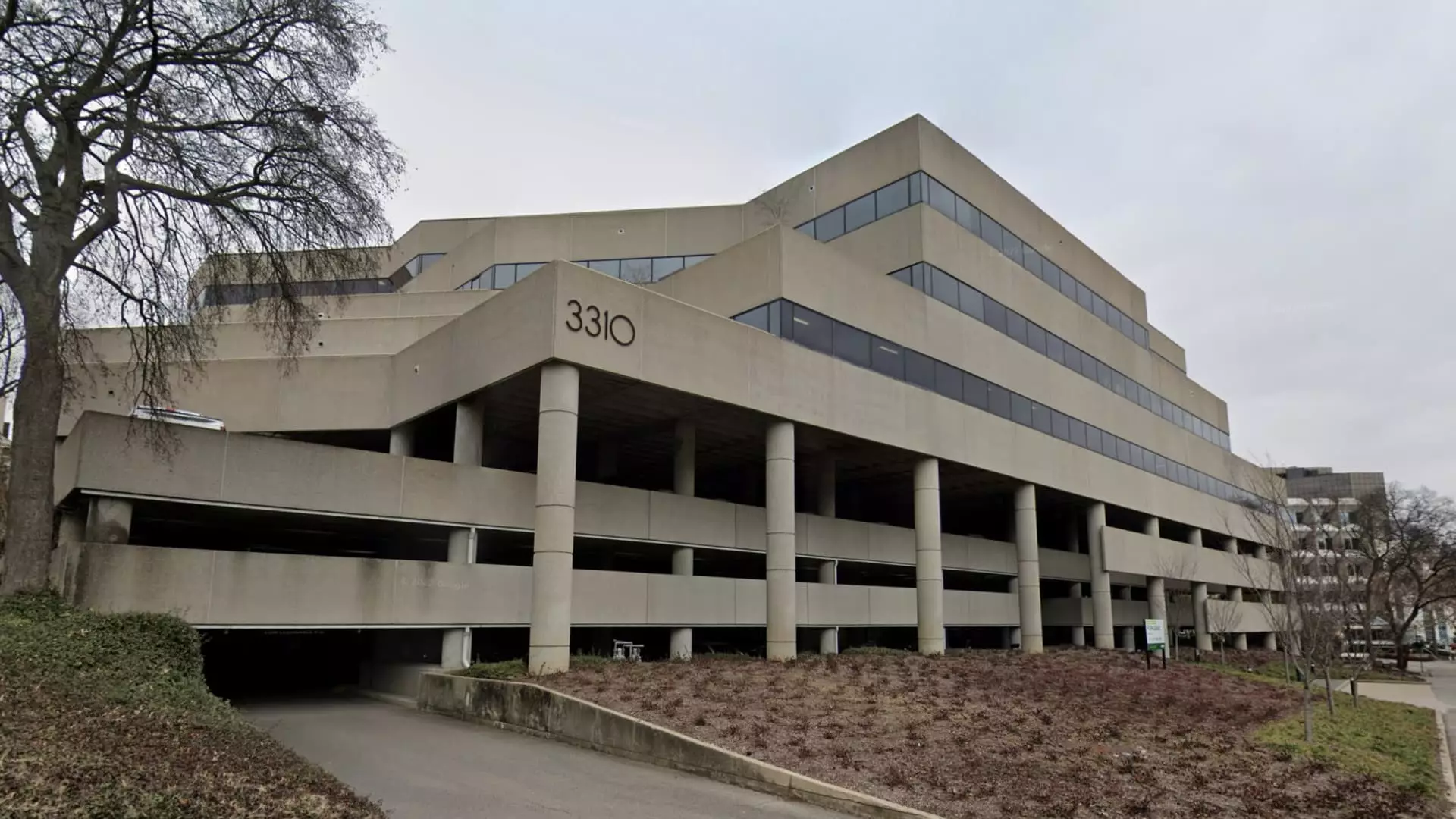Healthcare Realty Trust (HRT) operates as a self-managed and self-administered real estate investment trust (REIT) that specializes in owning and managing medical outpatient facilities. Its properties are strategically located, primarily around hospital campuses to leverage the influx of patients requiring outpatient care. The REIT boasts a significant portfolio, which comprises nearly 700 properties across 15 high-growth markets, encompassing a total of over 40 million square feet. This expansive footprint is supported by a diverse tenant base representing more than 30 physician specialties, highlighting HRT’s commitment to providing essential healthcare infrastructure.
Currently valued at approximately $6.38 billion, with shares trading around $17.99, HRT has found itself in a complex landscape of healthcare real estate, especially given recent financial developments. The company’s stock has faced pressure, evidenced by a substantial decline of over 15%, while the broader Russell 2000 index has experienced a notable increase of 33% in the same timeframe. This discrepancy raises questions about HRT’s operational efficiency and overall competitiveness within its sector.
Activist Investor Influence: The Role of Starboard Value
One critical player that has entered Healthcare Realty’s narrative is Starboard Value, an influential activist investment firm known for its successful campaigns aimed at enhancing operational efficiencies and boosting margins. With an established history of 155 activist campaigns and an impressive average return of 23.37%, Starboard’s presence signals a pivotal moment for HRT. On November 26, 2023, the firm disclosed a 5.90% stake in HRT, highlighting its intention to exert influence on the company’s strategic direction.
Starboard’s involvement comes at a time when HRT is grappling with the aftermath of a controversial merger with Healthcare Trust of America (HTA). Despite overwhelming shareholder approval of 92% for the merger, questions remain about whether this move was indeed in shareholders’ best interests, particularly given the dilutive nature of the transaction. HRT’s operational expenses have surged, and funds from operations (FFO) yield stands at 9%, markedly higher than its peers, raising concerns about the company’s cost management strategies.
Leadership Changes and Strategic Dilemmas
Recent leadership transitions have further complicated HRT’s trajectory. The resignation of Todd Meredith, the longtime president and CEO, marks a critical juncture for the company. His departure, coupled with Starboard’s entrance, creates dual pathways for the future: either a comprehensive search for a new CEO or a potential sale of the company. Each option carries its own set of advantages and challenges.
In pursuing a standalone strategy, HRT faces the imperative to refresh its board of directors to restore investor confidence. Such a transformation is necessary to implement a turnaround in operational efficiency—a concept where Starboard has demonstrated substantial expertise. Historical precedence suggests that a well-executed board refresh could lead to significant improvements, as evidenced by past successes in similar activist scenarios.
Conversely, the prospect of a sale could streamline the decision-making process and potentially maximize shareholder returns. Starboard’s involvement could facilitate negotiations with strategic acquirers like Welltower or Healthpeak, whose lower capital costs and cap rates make them attractive potential buyers. The reality is that strong strategic interests have already been indicated, exemplified by Welltower’s previous bid to acquire HRT at $31.75 per share—a figure that substantially exceeds HRT’s current valuation.
As Healthcare Realty Trust navigates this pivotal moment, the path forward hinges on strategic decision-making and effective governance. Starboard Value’s active role presents an opportunity for significant change, whether through positioning the company for operational transformation or facilitating a sale that would deliver immediate value to shareholders.
The interplay between maintaining autonomy and exploring acquisition options reveals inherent tensions faced by the board and management. Stakeholders must scrutinize the performance of HRT in light of its recent challenges, particularly the perceived failure to capitalize on synergies from the HTA merger and the underlying cost structures that have created operational headwinds.
Ultimately, HRT stands at a crossroads, where decisions made in the near term will shape its foundational stability and growth trajectory. The company must leverage this moment to redefine its strategy, ensuring that the investment made by shareholders is not only preserved but enhanced through thoughtful management and clear operational focus.

